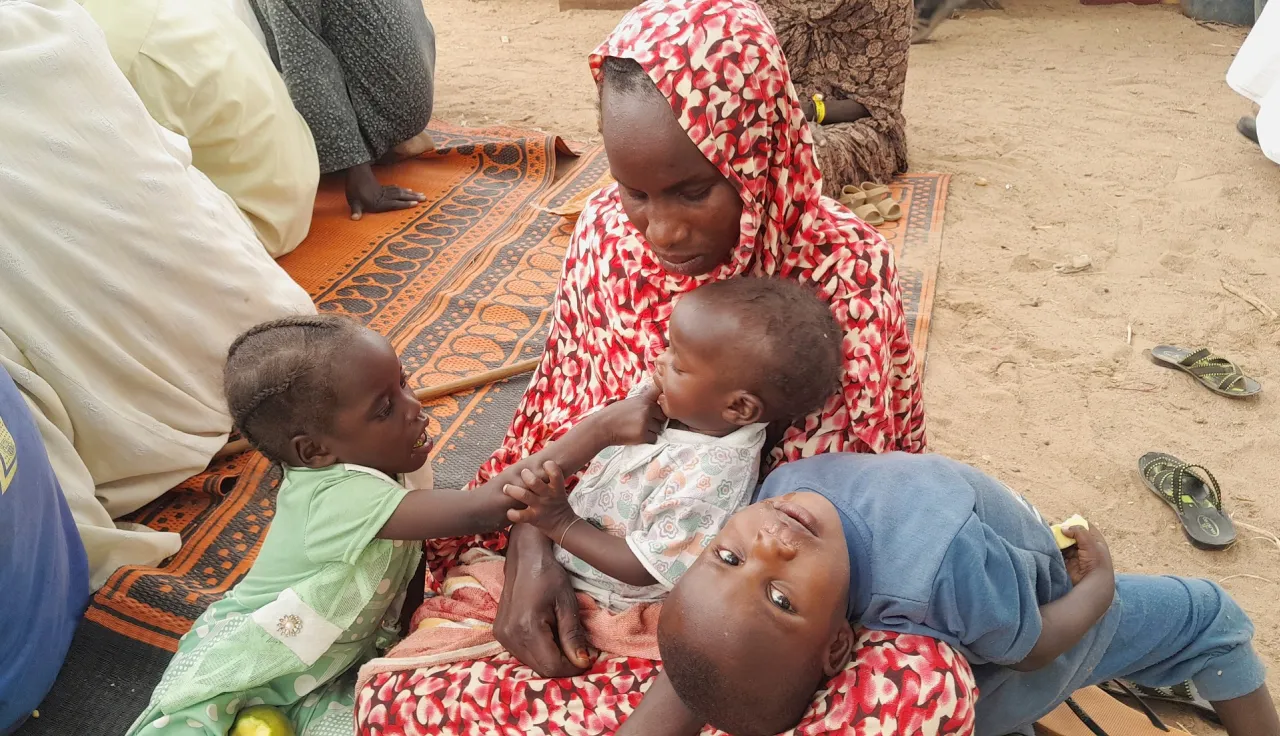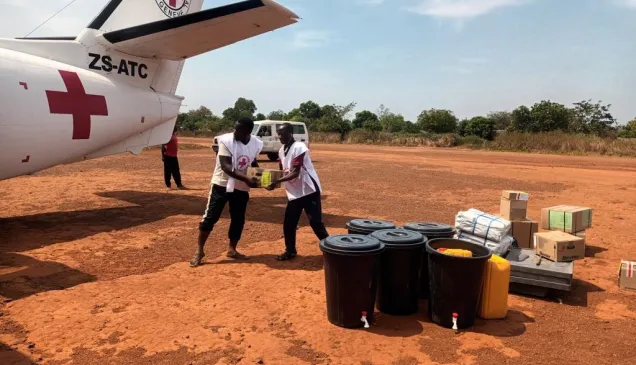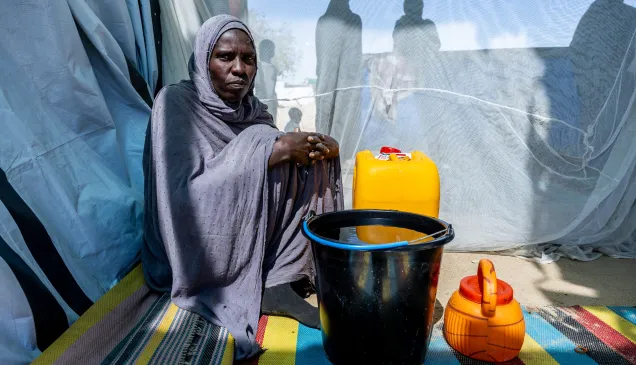Exhausted from the journey, they sometimes wait for days before being able to cross the border. They have little food or water, only a few personal items and limited access to protection and aid. Countries neighboring Sudan impacted by this emergency are already hosting large refugee and internally displaced populations.
Teams from the International Red Cross and Red Crescent Movement are increasing protection and assistance efforts at border crossings to meet the rising needs, in addition to efforts to deliver life-saving aid and phone call services to people in Sudan by the Sudanese Red Crescent Society.
“The humanitarian situation in this region is complicated. It can be difficult for communities from Sudan’s neighbors to welcome people seeking refuge if those communities themselves are already in a vulnerable situation. That means it’s even more vital that humanitarian assistance reaches those now fleeing Sudan,” said Patrick Youssef, ICRC’s regional director for Africa.
In the Central African Republic, which has long experienced periods of conflict, violence and food shortages, teams from the International Committee of the Red Cross (ICRC) and volunteers from the Central African Red Cross Society (CARCS) are ensuring access to clean water by installing water storage bladders and toilets and distributing jerrycans and chlorine for water disinfection. They are also distributing medicines in Am Dafock to people crossing the border, as well as residents. The ICRC, together with the CARCS, is providing phone services for displaced population to reach their families, and is also supporting efforts to assist unaccompanied children.
"Our homes have been burnt, destroyed. We need everything."
Awa Essa recalls how she fled the fighting in #Sudan. pic.twitter.com/FjpKY2zyTf— ICRC (@ICRC) May 19, 2023
In South Sudan, many people fleeing violence – including South Sudanese refugees in Sudan forced to return to their country– are crossing the border and face the risk of being stranded because of a lack of transportation. The ICRC and South Sudanese Red Cross Society (SSRCS) have deployed a rapid response team to assess the needs and bring humanitarian assistance for returnees and displaced Sudanese nationals entering a country that has long experienced its own conflict and violence.
In Egypt, the Egyptian Red Crescent, which is the only relief organization present at that border, established a centre for relief and emergency services at the Arqin border crossing with Sudan. People fleeing to Egypt are provided with psychological support, medicines and food. The ICRC is supporting the ERCS to provide telephone and online communications to reach their loved ones.
A team from the Ethiopian Red Cross Society provided drinking water, food, and basic shelter to people who crossed the border in Metema. In addition, the ICRC and ERCS are providing phone call services to all displaced persons to stay in touch with their families.
Civilians fleeing violence and conflict must be protected and treated with respect, dignity and humanity throughout their journey. People trying to flee and access assistance should be able to do so safely. All possible measures must be taken to ensure that all displaced civilians in Sudan and across borders have access to protection and satisfactory conditions of shelter, hygiene, health, safety and nutrition, and that members of the same family are not separated.
Those fleeing violence and conflict must be allowed to seek international protection. Children fleeing the hostilities are particularly vulnerable and are entitled to special respect and protection in accordance with their rights as a child. The child’s best interests should be a primary consideration in all actions that concern them.
States must uphold the principle of non-refoulement in all circumstances. This principle, which is part of customary international law, prohibits the transfer of a person from one state to another when there are substantial grounds for believing that the person would be in danger of being subjected to violations of certain fundamental rights. This implies, for instance, that people fleeing the conflict in Sudan and seeking refuge in neighboring countries must not be returned to Sudan or, in the case of non-Sudanese nationals, to their country of origin without a prior individual assessment of the risks upon return. Such assessment should be informed inter alia by considerations related to the specific vulnerabilities of certain groups such as women and girls, unaccompanied and separated children, or political dissidents.
Media contacts:
Alyona Synenko, ICRC Nairobi,
+254 716 897 265, asynenko@icrc.org




